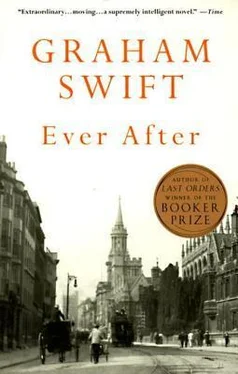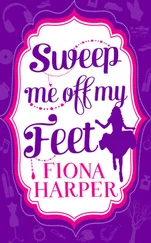And it seems that my letter must have been taken as in some way loaded, double-edged (“information has come into my possession …”). They thought I knew something. Ha! And it seems we have got our wires crossed. Hopelessly crossed.
And look how I obey Major Pilkington’s stringent admonitions. I copy out the text of his letter right here for everyone to see.
(Everyone?)
But none of it matters, does it? Because he wasn’t my— Was he? What does this phantom that Major Pilkington has conjured up out of his files matter to me?
The night mist swirls round the battlements of Elsinore. Shapes loom on the guard platform. “Who’s there?” Did ever a play so palpably and so troublingly sound its note?
“Angels and ministers of grace defend us!”
But even when he was alive, he was no more than the ghost of my father. “An honourable man” … “conflicting intolerably” … when you are out on an adventure …
So why should I—?
“Armed, say you?”—“Armed, my lord.”—“From top to toe?”—“My lord, from head to foot …”
And what good, in any case, is Hamlet’s long-deferred and juvenile revenge, now that its spur, its object — my dear old wicked uncle Claudius — is dead …?
For one thought that did not occur to me as Sam delivered his fateful message, here under the bean tree, was that I was looking at him for the last time. Barely six weeks later he would be dead, and news of his death — and of its nefarious circumstances — would reach me only days, in fact, before Major Pilkington’s dispatch came winging towards me out of the even more nefarious circumstances of an earlier death.
Death! Death! You think it is elsewhere, but it is suddenly all around you, like a mist, a tide. It springs up like overnight mushrooms, it descends like the ghostly parachutes of secret agents, slipping behind enemy lines.
Was that it, then? He somehow knew ? Sam knew. I didn’t know, but he knew. Something some specialist had gently broken to him. The old ticker, it’s not what it was.… Or just some unquellable premonition. After Ruth, after Sylvie. Brother Ed’s old coral-boned tug at his sleeve … My turn is coming. My last chance, maybe. So — do I tell the kid or don’t I?
Except he didn’t know the half. And now I’ll never be able to face him with it, ask him (a reversal of his confiding visit to me — and a flagrant contravention of Major Pilkington’s orders): Sam, I’ve got to tell you.… Sam, did you ever know what my father — I mean my— I mean what he did …? Sam, will you take a look at this …?
Why is it that it is Sam’s features and not my father’s (my whose?) that float before me as I read and re-read Major Pilkington’s studied words? The clean, unfadingly tanned smoothness of his skin, which even at sixty-seven (the man really thought he didn’t have long?) looked so incongruously unlived-in. The doggish eyes.
“You have to tell the truth, don’t you, pal?”
We might have continued our discussions, resumed our topic. Further visits, further colloquies, here in this contemplative domain. Mr Plastic in the purlieus of knowledge. A subject worthy of philosophic debate: Do people kill themselves for love?
“Tis here!”—“Tis here!”—“Tis gone …”
That she did or didn’t know I was another man’s son.
That she would or wouldn’t have told me in the last days, hours, of her life.
(That Sam should have kept his mouth shut.)
That he killed himself because of my mother and Sam — i.e., for love. (And Major Pilkington never knew the half.)
That he killed himself because of his “conscientious aversion,” and she really knew it.
That she didn’t know it, and the explanation given by the inquiry must have seemed to her like the perfect gift. But she couldn’t use it, could she, because she had to keep quiet? (My mother — keep quiet?)
That she told him he wasn’t my father (a monumental row, the heat of the moment, out it all comes) never thinking the revelation might kill him.
That she told him he wasn’t my father, knowing that the man was primed, in any case, to commit suicide.
That she was a murderous bitch.
That he really was my father and she told him he wasn’t.
A lying, murderous bitch.
But then why should she have told Sam?
That she never told him he wasn’t my father, but she told Sam she had told him he wasn’t my father, to take upon herself the full blame for his suicide and spare Sam’s incipient guilt.
Not such a murderous, and only for benign motives a lying, bitch.
That Sam in all this was a complete innocent?
That he wasn’t my father but she never told him he wasn’t my father and invented the story of telling him he wasn’t because it was ( a ) a way of confessing a long-suppressed and burdensome truth, and ( b ) it effectively masked (Major Pilkington would have been proud) the real cause of his suicide.
That …
That …
Felix qui potuit … I doubt it.
I was born — in the week that lovelorn King Edward renounced his throne — in the county of Berkshire, between the valleys of the Thames and the Kennet, not so far, in one direction, from the little Thames-side township of Pangbourne, and not so far, in the other, from the quaint and sleepy village of Aldermaston.
Now, Aldermaston, in those days, was wholly innocent of the sinister connotations it would later have. Its modest but ancient main street climbed up to the gates of Aldermaston Court, a Victorian pile in the mock-Tudor style, which nonetheless looked back to its real-Tudor avatar (visited by Henry VIII and Elizabeth I) rather than anticipated the days when an Atomic Weapons Research Establishment would occupy its grounds. Toiling horses, not yet ousted by the automobile, would still have hauled the occasional cart up Aldermaston Hill. And below Aldermaston, a mile or so from where the road bridge crossed the old Kennet River, barges, bound for Aldermaston Wharf, would still have plied their trade on the new (meaning hundred-and-fifty-year-old) Kennet and Avon Canal.
But as I grew up, in those far-off days, I saw myself as a child of the future. I was enamoured — little thinking that the object of my passion was doomed, too, soon to become an anachronism — of that roaring, hurtling, up-to-the-minute thing, the steam engine. And, hardly appreciating that my wish was the oldest wish in the book, I wanted to be, as every little boy was supposed to want to be — ha! — an engine driver.
Since I lived not only between the converging Thames and Kennet but between the diverging arms of the Great Western Railway (northwards to Didcot, southwards to Newbury) as they emerged from Reading, it was not surprising that I should feel this call of the rails. Boys will be boys. Even my hypothetical grandsire, Sir Walter Ralegh, was once an anonymous scamp obeying the truant instincts of his kind — scurrying down, if we are to believe the legends and Millais’ famous painting, from his Devonshire home to the sea-shore, to spy the passing ships and sniff the beckoning air. There he sits, hands clasping his drawn-up velveteen knees, like some child in a Victorian nursery, while a whiskered, brawny mariner straight out of stage melodrama, flings a histrionic arm towards the horizon.
The first stirrings. The call of destiny. When you are out on …
But I was not born within scurrying distance of the sea. I was born in the soft-bellied, landlubber’s county of Berkshire. So what could I do but pedal down to the railway line (half an hour to Pangbourne, half an hour to Aldermaston Wharf) and there spy those galleons of iron and steam, sailing on their way to Oxford, Bristol and the far south-west?
Читать дальше












